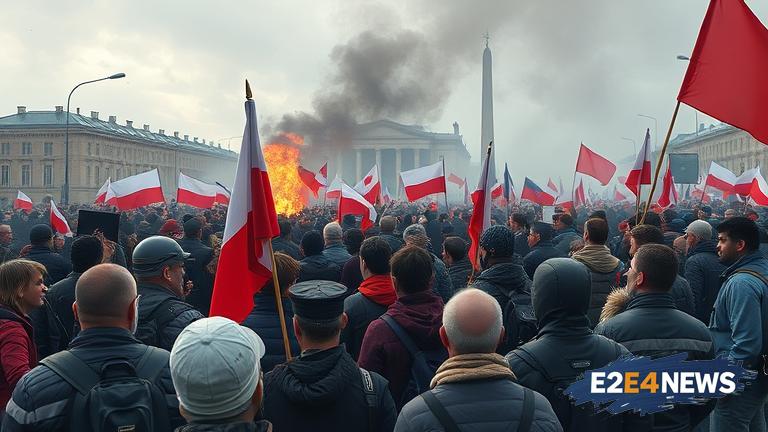In a wave of protests that swept across Poland, demonstrators in more than 80 cities took to the streets to express their concerns over immigration. The protests, which were largely peaceful, were organized by various nationalist groups and drew significant attention to the issue of immigration in the country. Poland, known for its relatively homogeneous population, has seen a surge in immigration in recent years, particularly from neighboring countries such as Ukraine. The influx of immigrants has sparked debates over national identity, job security, and cultural preservation. Many protesters argued that the Polish government has not done enough to address the concerns of its citizens, and that the country’s immigration policies are too lenient. Others expressed fears that the influx of immigrants would lead to a loss of Polish culture and traditions. The protests were met with a mix of support and criticism from politicians, with some hailing the demonstrations as a legitimate expression of public concern, while others condemned them as xenophobic and divisive. Despite the controversy, the protests have brought attention to the complex issue of immigration in Poland, and have sparked a national conversation about the country’s identity and values. The Polish government has announced plans to review its immigration policies, and to increase funding for border security and integration programs. However, many protesters remain skeptical, arguing that the government’s measures do not go far enough to address their concerns. As the debate over immigration continues to simmer in Poland, it remains to be seen how the government will balance the need to protect national identity with the need to provide a safe and welcoming environment for immigrants. The protests have also sparked concerns over the rise of nationalism and xenophobia in Poland, and have led to calls for greater tolerance and understanding. In response to the protests, the Polish government has announced plans to increase funding for programs aimed at promoting social cohesion and combating hate speech. Despite these efforts, the issue of immigration is likely to remain a contentious one in Poland, and will continue to be a major topic of debate in the months and years to come. The protests have also had an impact on Poland’s relationships with its European neighbors, with some countries expressing concerns over the rise of nationalism and xenophobia in the region. As the situation continues to unfold, it remains to be seen how Poland will navigate the complex and often contentious issue of immigration, and how the country will balance its need to protect national identity with its obligations to provide a safe and welcoming environment for immigrants.
